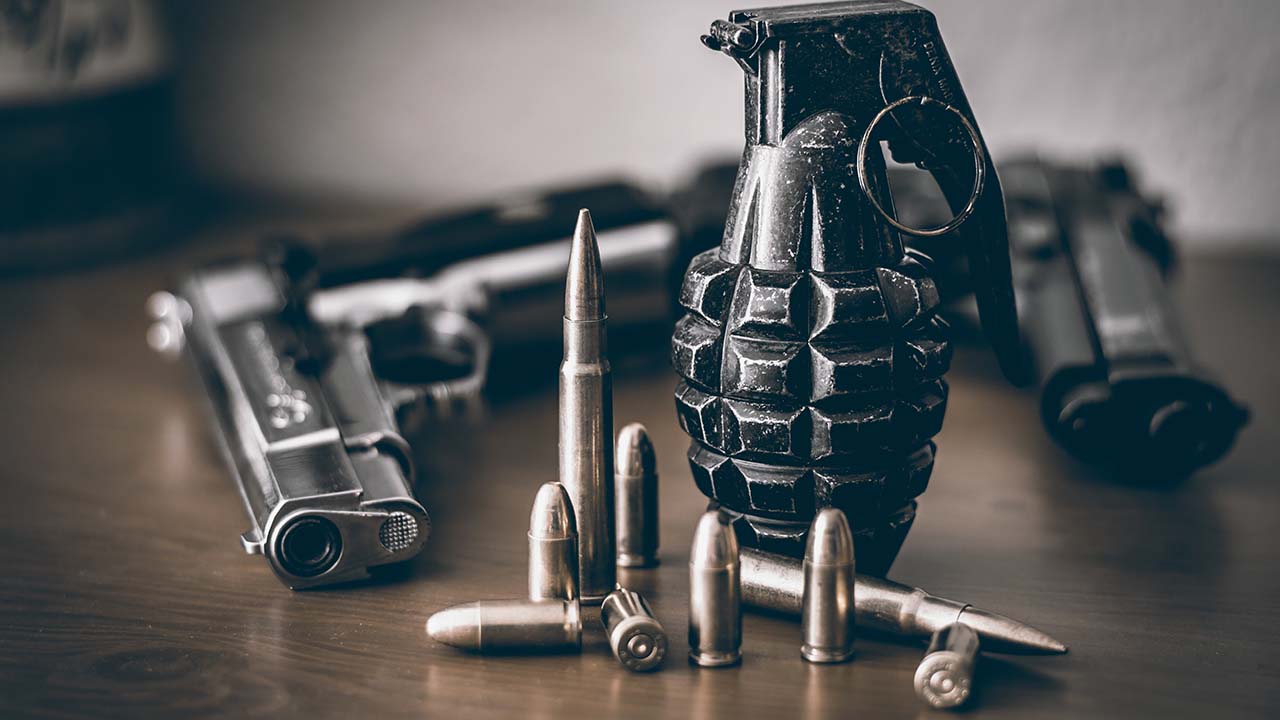
April 8, 2010 | PERMANENT MISSION OF NEW ZEALAND TO THE UNITED NATIONS
PGA held a Strategy Meeting on the Contribution of Parliamentarians to the Negotiation of an Arms Trade Treaty (ATT) at the Permanent Mission of New Zealand to the United Nations on 8 April, 2010.
The Meeting was opened by PGA Secretary-General Shazia Rafi and Amb. Kirsty Graham, Deputy Permanent Representative of the New Zealand to the United Nations.
Ms. Rafi outlined PGA's long and extensive experience in the Disarmament arena which Amb. Graham underscored New Zealand's commitment to the negotiation of an Arms Trade Treaty, recognizing that many challenges and obstacles would have to be overcome between now and mid-2012 when the process is set to culminate.
Senator Franklin Siakor of Liberia, PGA International Council Member, highlighted the need to address core problems ? lack of law and order, basic security and poverty went to the core of the matter. Constituency building was all well and good, but without addressing the more fundamental problems in the background, it could only go so far.
Senator Obasanjo Bello (Nigeria), PGA Member, gave an extended presentation on the ground-breaking work that has been conducted by ECOWAS in this area, in particular dwelling on the ECOWAS Convention on Small Arms and Light Weapons. Having outlined the background to the coming into force of the Convention, Senator Obasanjo Bello made specific reference to those provisions of the Convention that specifically cater for legislator and legislative input, making plain, in so doing, the seminal role to be played by Parliamentarians in this area.
Dr. Donya Aziz, MP (Pakistan), PGA Executive Committee Member, observed that making progress in this area was easier in some regions of the world compared to others. In her own country, for example, the security situation on the ground posed formidable challenges, making it very difficult to contemplate, at least in the short term, a shift in views on the proposed Arms Trade Treaty. Dr. Aziz also spoke of another real challenge in this area ? that of endemic corruption and until such time as this is effectively addressed, expectations of making headway in this area must be necessarily limited.
Mr. Kent Olsson, MP (Sweden), Convenor of the Peace & Democracy Program of PGA, and past Treasurer of the organization, observed the important progress that had been made just in the past few days in the area of nuclear arms control. He noted that it was incumbent on Legislators to take the initiative themselves, reach out to key stakeholders, arrange relevant parliamentary committee meetings on the issue. Mr. Olsson is traveling to Oslo in the third week of April for a Conference on Armed Violence sponsored by the Ministry of Foreign Affairs of Norway and UNDP.
Following an interactive session:
Mr. Daniel Prins, Chief of Conventional Arms in the UN Office of Disarmament Affairs provided an extensive canvas of how he saw Legislators playing a critical role in advancing better regulation of SALW and the process of negotiations towards an Arms Trade Treaty. He indicated his satisfaction that on a number of the areas he addressed, the MPs present were already cogniscant of this fact and were already actively engaged. Mr. Prins singled out in particular the issue of End User Certificates as an area which would be a natural/ripe one for MPs to become actively engaged as their usage was vulnerable to abuse and fraudulent activities. As other speakers did, Mr. Prins observed the multifaceted aspect of this issue. In one country alone, for example, Jamaica, 25% of its health budget goes to treating people with armed violence related wounds.
Professor Barbara Frey of the University of Minnesota examined the role of Parliamentarians in the area from a human rights dimension. The importance of researching norms, in particular in customary international law, to build up a case for arguing that certain principles in a future Treaty should be included as they already represent customary international law - hence, implicitly, making the exercise drafting of any such agreement a less fraught one.
Professor Denise Garcia of Northeastern University observed that MPs have a role to play at all stages, in the run up to negotiations (advocacy), during negotiations (substantive input in terms of content), after negotiations (seeking ratifications) and beyond (implementation of obligations incurred by ratification into domestic law).
Professor Garcia was also quick to note that legislation should not be seen as being some sort of an abstract or more esoteric exercise. The best legislation can save lives, as evidenced by the case of Brazil which introduced comprehensive disarmament legislation seven years ago and has seen a concomitant fall off in armed violence.
Following a brief follow-on interactive discussion, Peter Barcroft, Senior Program Officer, PGA made a few observations wherein he remarked on the importance of legislators raising these important issues within the context of their existing work, as there was frequently such a dimension in such work. Mr. Barcroft also observed that there was a natural chain of events at play here. That progress at the national level facilitated progress at the regional level which in turn facilitated progress at the multilateral level.
Mr. Olsson closed the meeting at 12:30pm.

